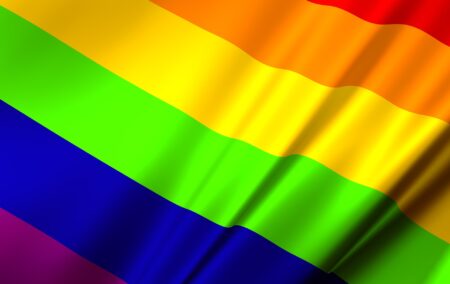The LGBTQ electorate may be a more significant and dynamic voting bloc than many expect.
South Africa is fast approaching the next five-yearly municipal elections, which are likely between August and November next year, when voters choose candidates for all district, metropolitan and local municipalities in each of the country’s nine provinces.
Much is known about South African voters in general: how many are registered to vote; who is more likely to vote for the ruling party and who is more likely to vote for the opposition; how the urban vote differs from the rural vote; how young South Africans think and feel about democracy and the major political parties; and how many people have not been participating in the last few elections.
But we do not have comprehensive data on the LGBTQ electorate, perhaps as a result of a lack of resources for such a study. The perception may exist that the LGBTQ population is tiny and therefore will not have a significant impact on political parties’ electoral performances. Many also believe that LGBTQ people only tend to vote one way and are more inclined to vote for social liberal parties.
Larger, dynamic and more complex
But the LGBTQ electorate is a much larger, more dynamic and more complex demographic group than most are inclined to think.
First, LGBTQ voters tend to be more politically engaged than other demographic groups. A national survey conducted in the United States by the Public Religion Research Institute in June 2017 showed that young LGBT people were more likely to participate in political activities than their heterosexual counterparts. Of the 2 023 young Americans surveyed, more than two thirds (68%) of LGBT people liked or followed political campaigns or causes online compared to just 42% of non-LGBT respondents.
More than two thirds (67%) of LGBT respondents signed a petition online compared to just 41% of non-LGBT respondents. More than half (52%) of LGBT respondents volunteered for a group or cause compared to less than a third of non-LGBT respondents.
LGBT respondents were twice as likely to donate money to a campaign or cause compared to non-LGBT people. LGBT respondents were also twice as likely as non-LGBT respondents to either have contacted an elected official or attended a rally/demonstration.
Second, the LGBTQ voting bloc may be larger than expected. According to The Other Foundation (an African Trust dedicated to advancing human rights in South Africa), 1.4% of South Africa’s population identified as part of the LGBT community. This equates to more than half a million people (530 000 South Africans) who identify as LGBT.
Conservative estimate
However, this is most likely to be a conservative estimate, since many LGBTQ individuals hide their sexual orientation and gender identity due to fear of rejection, discrimination and even violence.
In fact, according a study done by O.U.T, (a Pretoria based LGBT health clinic), only 51% of black LGBTQ people are completely open about their identity. The true size of the South Africa LGBTQ population – and therefore the number of voters – is thought to be much larger.
Third, the idea that LGBTQ people tend to always vote for Left-leaning political parties is not accurate. Brazil’s 2018 election, in which Jair Bolsonaro was elected as president, is a revealing case. Bolsonaro’s political views have been described as right-wing, as he supports anti-abortion and pro-gun policies, while also opposing environmental regulations, affirmative action, immigration, drug liberalisation, land reforms and secularism at the federal level.
However, a breakdown of the 2018 Brazilian election results showed that nearly a third (29%) of the country’s LGBTQ population voted for Bolsonaro – and this despite his opposing same-sex marriage, and making disparaging remarks about LGBTQ people in the past. Bolsonaro’s LGBTQ supporters pointed out that his promise to clamp down on crime, create jobs and root out corruption won their vote.
Anti-gay views
With Brazil having one of the highest unemployment and crime rates in the world, coupled with the fact that the country struggles with rampant corruption, many LGBTQ citizens were willing to look past Bolsonaro’s anti-gay views.
It is clear that South Africa’s LGBTQ electorate is a more sizeable market than many people may realise, but also that LGBTQ voters are not necessarily going to vote for a political party purely because it is pro-LGBT rights.
Rather, LGBTQ people could very well vote for seemingly homophobic parties if those parties touch on other pressing issues that affect this cohort.
If you like what you have just read, subscribe to the Daily Friend

